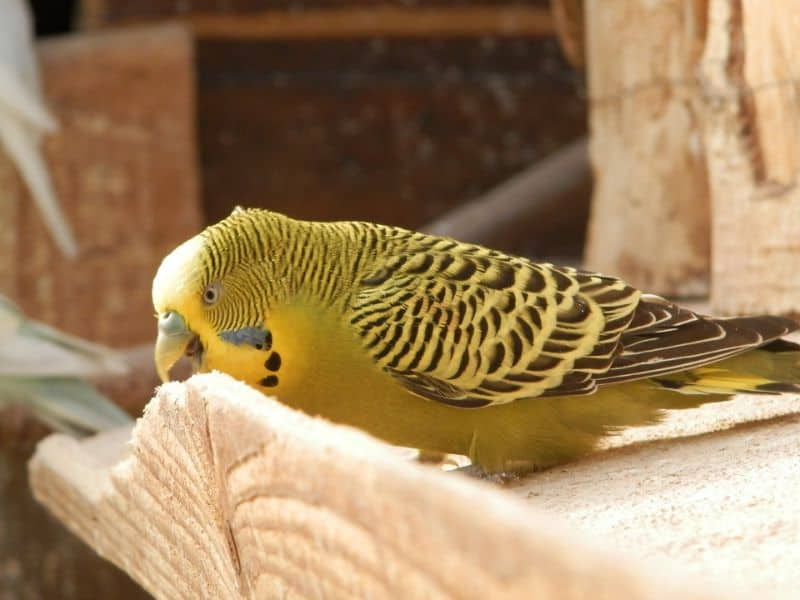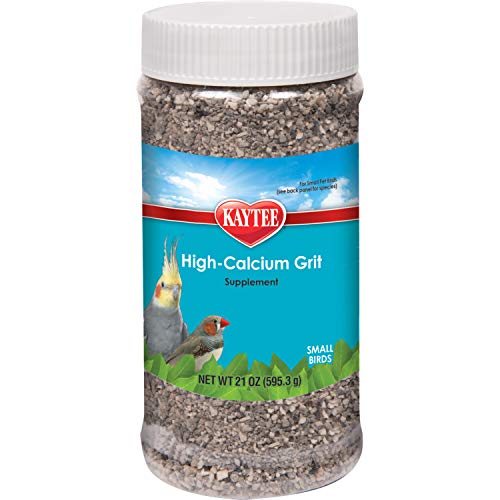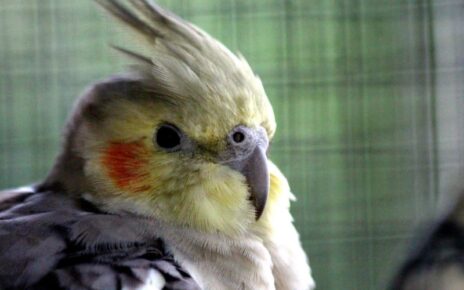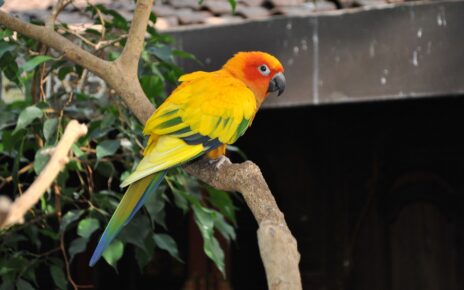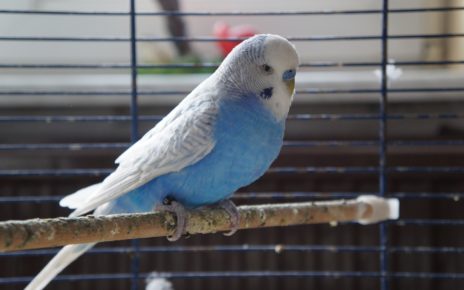Do Parakeets Need Grit? There are differing opinions about whether Parakeets need grit. It was once thought that parakeets needed grit to break down seeds in their gizzard to aid in digestion. However, in most cases, you don’t need to give a parakeet grit since they don’t consume hard seed shells that contain large amounts of indigestible fiber.
Do Parakeets Need Grit?
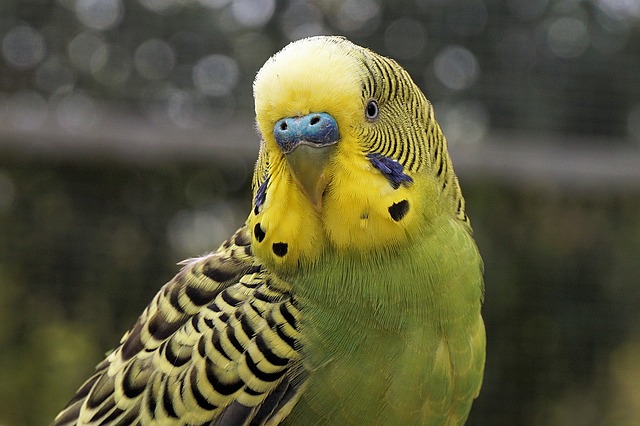
Parakeets and other hookbills usually do not need much grit to aid in digestion. This is because they remove the shells from the seeds they eat with their sharp curved bill.
You still might see some sources out there saying that parakeets need grit, but those recommendations have changed as bird owners and veterinarians have developed a better understanding of a parakeet’s natural feeding habits and intestinal physiology.
However, grit still has some benefits for a parakeet since it can serve as a source of vital minerals in a parakeets’ diet. And we’ll go over these mineral-based grit alternatives in more detail in the following sections of this article.
What Birds Do Need Grit?
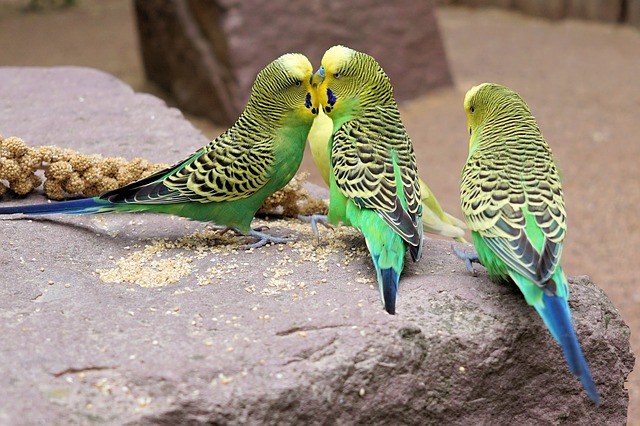
There are some pet birds that still need grit to break down hard seed shells in their gizzard. These birds tend to have straight beaks like canaries, pigeons, and finches.
Birds with straight beaks usually don’t have the beak strength or dexterity to remove the shells from seeds before they swallow them. And without grit in their gizzard, they wouldn’t be able to break down the seed shells, which would lead to malnutrition and a wide range of health problems.
Types of Grit for Parakeets
If you want to give a parakeet grit it’s important to understand the two different kinds of grit. The two types of grit are soluble and insoluble grit, which we’ll go over in more detail in the following sections.
Soluble Grit
Soluble grit includes cuttlebone, oyster shell, limestone, gypsum, and Kaytee Hi-Calcium Grit (Buy Online)
The good thing about soluble grit is that it dissolves when it is exposed to acid in a parakeet’s digestive system. That makes it much safer to give to a parakeet since it won’t build up in their crop and cause an intestinal obstruction.
Plus, since soluble grit dissolves so quickly in a parakeet’s intestines it serves as an excellent source of calcium, phosphorus, and other trace minerals that parakeets need in their diet.
The only “downside” of soluble grit is that it won’t break down hard seed shells, but that isn’t a problem for most parakeets since they remove the shell from the seeds they eat before they swallow them.
Insoluble Grit
Insoluble grit usually contains large amounts of indigestible silica, and it is available in a wide range of sizes from small sand-like particles all the way up to small pebbles.
After a bird consumes insoluble grit it will get deposited in a bird’s gizzard, where it will aid in digestion by mechanically breaking down hard seed shells.
Parakeets and Insoluble Grit
In most cases, parakeets won’t need to be given insoluble grit since they remove shells from seeds before they swallow them, and insoluble grit can even cause blockages in a parakeet’s intestines if it’s too large or if a parakeet consumes too much insoluble grit.
Parakeet Grit and Digestion
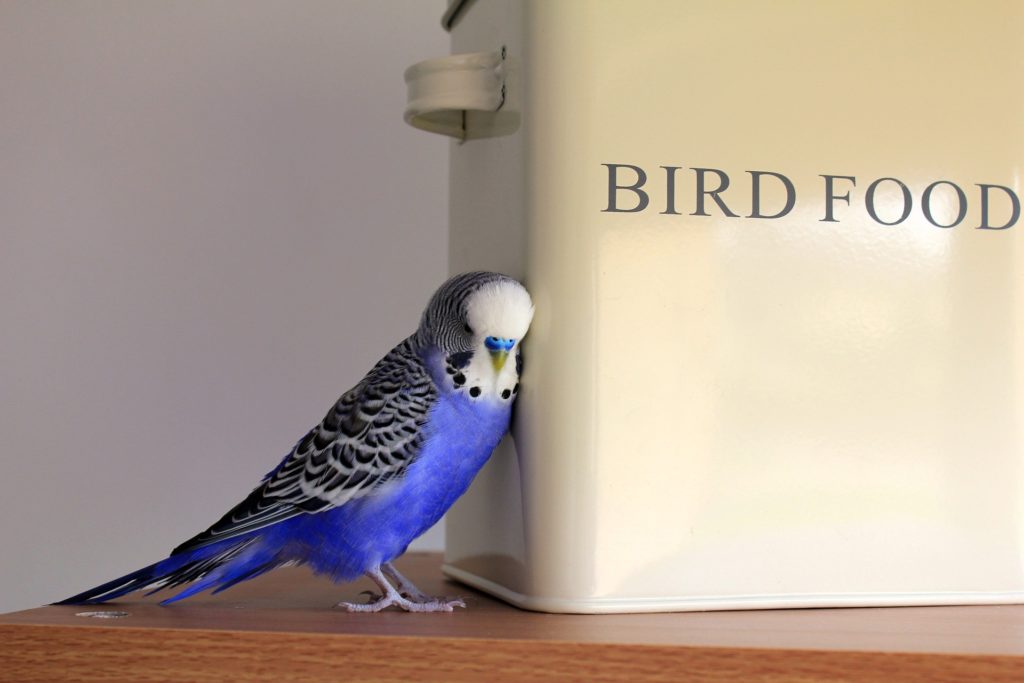
All birds have a gizzard which is a muscular part of their stomach that grinds and pulverizes hard foods. The grinding action breaks the food up into smaller pieces that are easier for digestive enzymes to break down as they pass through a bird’s intestines.
Over the course of time parakeets have evolved to have a smaller gizzard since they have a sharp curved beak that they use to remove shells from seeds before they swallow them. That makes it easier for a parakeet to absorb the nutrients from the seeds they eat, so they need very little grit in their gizzard to break down the soft seed hearts that they swallow.
However, parakeets still need some grit in their diet, but you should avoid giving them insoluble grit since it can cause intestinal problems. Instead, you should offer your parakeet soluble grit like cuttlebone, oyster shell, or Kaytee Hi-Calcium Grit (Buy Online)
Parakeet Diet and Grit
Birds that come from the Psittacidae family (parakeets, parrots, budgies, and cockatiels) usually do not need insoluble grit to break down seeds in their intestines as long as you feed them commercially available birdseed that meets their specific dietary requirements.
Soluble grit, on the other hand, can serve as a good source of nutrients when given to a Parakeet in small quantities. But soluble grit should only be given to a parakeet sparingly since they only need a few grains of soluble grit in order to get its full nutritional benefits.
However, if you have a parakeet with a pancreatic disease or digestive problems they might get some relief if you give them a very small amount of insoluble grit to their diet. And if your parakeet has a digestive disorder, make sure you consult a veterinarian before you add grit to their diet.
Related: Parakeet Cage Size Calculator
Do Parakeets Have Problems with Grit
The main problem with grit is that a parakeet might eat too much of it if it’s always available. This can lead to digestive discomfort since grit can irritate a bird’s sensitive intestinal lining. In addition, if a bird eats too much grit it can cause a blockage of the crop, proventriculus, or ventriculus.
Birds will also eat excessive amounts of grit if they are lacking nutrients as a way to fill the gaps in their diet. That’s why it’s to feed them high-quality bird food made especially for parakeets so they get all the nutrients they need in their diet.
Offering Parakeets Grit
Insoluble grit like cuttlebone (Buy Online) or oyster shells can be offered to a parakeet once or twice a week. Fortified grit products like Kaytee Hi-Calcium Grit (Buy Online) can also be offered to parakeets in small amounts a couple of times a week, but you want to make sure your parakeet isn’t eating too much of it since it has very high mineral content.
Grit that contains charcoal should be avoided since charcoal can block the absorption of certain vitamins like Vitamin-A, Riboflavin, and Vitamin-K, which can lead to nutrient deficiencies which can lead to serious health problems.
Just remember, every bird is different, and if you have any questions about whether you should give your parakeet grit make sure you consult a veterinarian.

